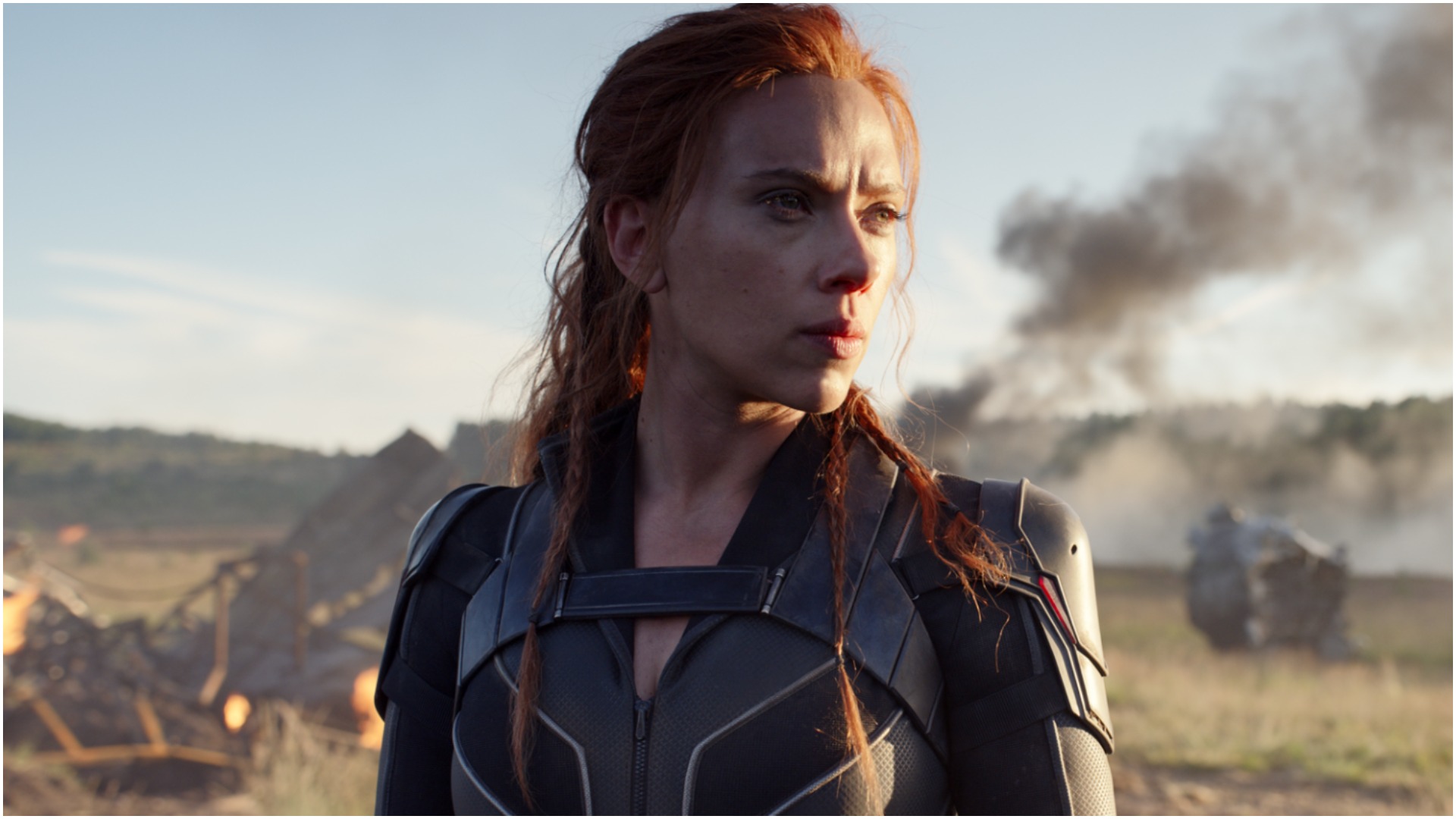The Disney and Scarlett Johansson lawsuit could have big implications for the future of streaming
Scarlett Johansson has filed a lawsuit against Disney for the release of Black Widow, and the implications could be huge

From the moment Warner Bros. announced plans to release its tentpole movies day-and-date in cinemas and on HBO Max, Hollywood has been reckoning with what the future of streaming will look like beyond the COVID-19 pandemic. Will blockbusters continue to be released online at the same time as in theaters? Will other studios follow suit?
Disney became the first to respond to the aggressive HBO Max stance, announcing that some major movies would be released via “Premiere Access” – AKA when you pay an extra $30/£20 on top of your Disney Plus membership to watch a new release online. Mulan became the test pilot for the new scheme, and was soon followed by Raya and the Last Dragon and Cruella. And while those were major releases, none compared to Black Widow, the first big-screen entry in Marvel Phase 4. The movie, also released in cinemas, has made over $80 million at the North America box office, plus an additional $60 million worldwide through Disney Plus (notably the first time Disney announced a figure for a Premiere Access release).
Now, though, Natasha Romanoff herself, Scarlett Johansson, is suing Disney, claiming that the streaming release of Black Widow – which she also acted as producer on – was in breach of contract. Johansson claims that Disney promised the movie would get a "theatrical release" and that a "window" of time would pass before Black Widow reached any streaming services – this window was typically 90 days, pre-COVID. Disney responded by saying they "fully complied" with the contract, and that the lawsuit was "especially sad and distressing in its callous disregard for the horrific and prolonged global effects of the COVID-19 pandemic".
Disney Strikes Back

Why would Johansson go through with this? Disney paid the actor an upfront fee of $20 million, yet her contract meant that she would receive a percentage of the box-office revenue, which, she argues, would have been cut due to the streaming release. Disney, however, says the dual release would have "significantly enhanced [Johansson's] ability to earn additional compensation on top of the $20 million she has received to date".
Actors and directors have previously spoken about their annoyance with the simultaneous release strategy. "There is absolutely no love for cinema, nor for the audience here," director Denis Villeneuve wrote in an open letter to Warner Bros. after the announcement that his next movie, Dune, would be released on HBO Max. Villeneuve went on to argue that Dune had already been pushed back a year so that people could safely return to the cinema to see the movie. “I strongly believe the future of cinema will be on the big screen, no matter what any Wall Street dilettante says,” he added after commenting that the decision was made for investors’ benefits, rather than the audience.
Likewise, Christopher Nolan has lambasted Warner Bros.’ decision. "Warner Bros had an incredible machine for getting a film-maker's work out everywhere, both in theatres and in the home, and they are dismantling it as we speak," he told the Hollywood Reporter (via BBC). "Their decision makes no economic sense and even the most casual Wall Street investor can see the difference between disruption and dysfunction."
Those are just two examples of creators lashing out at studios, but Johansson has gone one step further with a very public lawsuit. No doubt almost every director and actor involved with both Disney and Warner Bros.’ release plans has had their contracts renegotiated behind closed doors, yet Johansson’s stance could embolden others to come forward. And with that in mind, Hollywood’s studios will no doubt be rethinking release strategies.
Sign up for the Total Film Newsletter
Bringing all the latest movie news, features, and reviews to your inbox
The future of streaming

The most obvious and immediate impact is the number of future Disney releases that will get the Premiere Access treatment. Jungle Cruise, which reached Disney Plus just hours after Johansson’s lawsuit was filed, is currently the last Premiere Access release scheduled. There have been some fans wondering whether the upcoming Marvel flick Shang-Chi will come to streaming, but that’s looking increasingly doubtful. Likewise, Eternals, coming this November, probably won’t be released on Premiere Access – especially when you consider the star-power (and potential lawsuit) that could arise from upsetting the likes of Angelina Jolie and Salma Hyek.
So, what does the future hold? Curiously, we’ve already seen both Disney and Warner Bros. changing strategy when it comes to streaming releases. The upcoming Batgirl, which has added JK Simmons to its cast, has been fast-tracked for a 2022 release – and looks set to be an exclusive HBO Max release. No post-production contract negotiations required; everyone knows they’re involved with a direct-to-streaming movie. Likewise, Disney has Hocus Pocus 2, Peter Pan & Wendy, Disenchanted, and Sister Act 3 are all down as Disney Plus Originals. Chances are, at this stage, the studio won’t be switching up how Indiana Jones 5 beams into our eyes – that’s a theatrical-only release.
This all goes without discussing how theatrical release windows are gradually changing (a recent development has seen Universal movies end up on Peacock after just 45 days in cinemas) and many other nuances within the industry. The Scarlett Johansson vs Disney lawsuit, though, marks a rare glimpse behind the curtain of backstage contract negotiations, and teases a future where movies will not be surprise released on streaming services, unless, of course, clearly stated beforehand. Expect Thor: Love and Thunder in theaters – and not on Disney Plus.

Jack Shepherd is the former Senior Entertainment Editor of GamesRadar. Jack used to work at The Independent as a general culture writer before specializing in TV and film for the likes of GR+, Total Film, SFX, and others. You can now find Jack working as a freelance journalist and editor.


